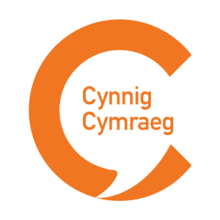Around 7,400 people have a stroke each year in Wales. Stroke is one of the biggest killers and a leading cause of disability. There are almost 70,000 stroke survivors living in Wales.
We believe everyone deserves to live the best life they can after stroke. For Welsh speakers, we know that this means supporting you in your language of choice. That's why we're working to increase the support we can offer through the medium of Welsh.
Here's the support we can offer:
Stroke Helpline
Our Helpline offers information and support for anyone affected by stroke. If you or someone you know has been affected by stroke, or you want to know more information on how to reduce your risk of a stroke, please get in touch on: 0303 3033 100.
To use the Welsh language service, please tell us you'd like to speak to someone in Welsh. We'll ask for your name and telephone number. A Welsh speaking member of the team will call you back as soon as possible.
Call our Stroke Helpline now on 0303 3033 100 or email helpline@stroke.org.uk. If the helpline is closed, you can use our out of hours contacts*.
Out of hour contacts*
If you suspect someone is having a stroke, dial 999 immediately.
In non-emergency situations:
- Call NHS 111 Wales (currently available in the following health board areas: Hywel Dda, Powys, Aneurin Bevan and Swansea Bay - including Bridgend).
- If you are outside this area, please call the NHS direct number: 0845 46 47
- Find other helplines through the Helplines Partnership online directory.
Publications
Explore our range of detailed information guides offering support and advice in Welsh:
- When you have a stroke / Pan fyddwch yn cael stroc.
- Next steps after a stroke / Y camau nesaf ar ol stroc.
- Supporting a stroke survivor / Cefnogi goroeswyr stroc.
- Communication Support Pack / pecyn cymorth Cyfathrebu Cymraeg.
Online Community
Join our Online Community and connect with thousands of people on the forum who understand stroke first hand. Chatting to people can help you cope better and rebuild your life after stroke.
You can talk about things important to you, ask questions and learn how people are managing their recoveries after stroke. You can also share your experiences and tips to help others. However long you’ve been living with stroke, our Online Community is here to support you day and night.
People tell us that being part of an Online Community helps them feel more supported, confident and positive about the future. Anyone can read the posts on the forum, and you’ll need to sign up for an account to join or start a new conversation.
To keep everyone safe, the forum is moderated by the Stroke Association. Visit the forum with a PC, laptop, tablet or smartphone. The forum is free and you must be over 18 to use it.
Support in your area
We work across Wales to support people to rebuild their lives after stroke. In some areas, our work is funded by the NHS, social services or by charitable funding and therefore may differ depending on where you live.
To find out what services are available in your area, you can use our search tool or call the Stroke Helpline on 0303 3033 100.
Campaigning
The Stroke Association communicates the views of stroke survivors and their family members and carers to policymakers, the NHS and local government and campaigns to improve services for all those affected by stroke in Wales.
This is so all stroke patients and survivors can rebuild their lives and make the best possible recovery. We work closely with the Cross Party Group on Stroke in the Welsh Parliament. They produced a report into implementation of the Welsh Government's Stroke Delivery Plan.
We're calling on political parties to include a new national plan for stroke in their manifestos for the Welsh Parliament elections in 2021. You can find out more about what we want to see the next Welsh Government achieve for those affected by stroke in our document 'The next Welsh Government: A new plan for stroke in Wales'.
Arnot's story
Arnot Hughes, 74 from Llandaff, Cardiff had a stroke in February 2020, just before the coronavirus pandemic forced a national lockdown. He left the hospital after 10 days with a common post-stroke communication difficulty called aphasia.
He couldn't speak at all when he left the hospital. Welsh was his day-to-day language, but speech and language therapy sessions were only available in English.
Find out more about the Stroke Association's Community Steps programme.

